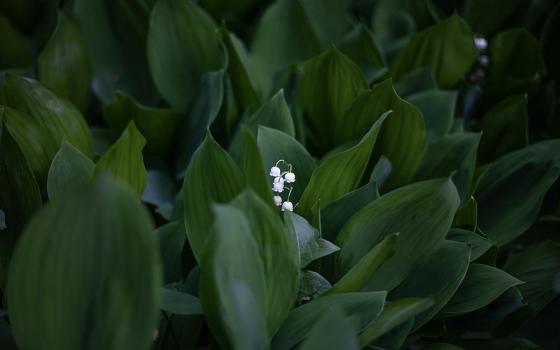When talk turns to “women in the church,” the normal association in the public mind is with debates over the ordination of women to the priesthood. Because there’s been no movement on that front, the tendency is often to assume the “women’s question” is frozen in place.
In reality, however, the last few decades have seen a broad trend towards appointing women to positions of ecclesiastical leadership that don’t require sacramental ordination.
In the United States, for example, 48.4 percent of all administrative positions in dioceses today are held by women. At the most senior levels, 26.8 percent of executive positions are held by women.
On Thursday, another crack in the glass ceiling appeared in the Vatican itself: For only the second time, a lay woman was appointed to one of the three key leadership positions inside a dicastery, or department, of the Roman Curia.
On Jan. 21, Pope Benedict XVI named Italian lay woman Flaminia Giovanelli, 61, a longtime official of the Pontifical Council for Justice and Peace, as the new under-secretary of that council.
Within each dicastery of the Roman Curia, there are generally three top positions: the prefect or president, who is generally a cardinal or an archbishop; the secretary, generally an archbishop or bishop; and the under-secretary, usually a monsignor or other cleric. Collectively, these three figures are known as i superiori, or ‘the superiors,” inside the office.
Giovanelli now joins Salesian Sr. Enrica Rosanna, also an Italian, as the only two women to hold a “superior”-level position in the Vatican. Rosanna was appointed in 2004 as under-secretary in the Congregation for Institutes of Consecrated Life and Societies of Apostolic Life. (That was generally held to be a slightly more significant move, since a congregation has greater authority in the Vatican than a council.)
Giovanelli is the second woman who is not a member of a religious order to hold such a job. The first was Australian lay woman Rosemary Goldie, who served as undersecretary of the Pontifical Council for the Laity from 1966 to 1976.
Giovanelli was born in Rome on March 24, 1948. She holds a degree in Political Science from Rome’s Sapienza University (a secular institution) as well as degrees in Religious Science from the Pontifical Gregorian University and in Library Science from the Vatican Library. She’s worked in the Pontifical Council for Justice and Peace since 1974.
On Thursday, Giovanelli spoke to Vatican Radio about her appointment. The following is a translation of that brief exchange:
How did you react to this appointment?
Obviously with joy, above all with gratitude to the Holy Father and to all my superiors, both now and in the past, and then certainly – gradually, the more I thought about it – with a little trepidation.
You are the only lay woman who holds this kind of role in the Vatican. Is the role of women in the church growing?
Maybe it’s growing in what I might call a visible way, but it’s always been there, and anyone who knows the life of the church and its mechanisms, including its institutions, knows that women have always had a very important role. Now, I would say, that’s becoming more visible.
What’s your experience in this dicastery?
It’s a very rich experience and very, very satisfying, in the sense that when I was a young woman, I would say a girl, I would never have thought that I have could have so much satisfaction in my work. Actually, it’s a job that’s more than a job, more than just a form of work: it’s become a kind of vocation. I say that often to groups which come to visit us, which are very numerous, and also to my young colleagues: I don’t believe there’s another job that’s as passionate as what we have here, where we truly have the pulse of both the joys and the suffering of the entire world, minute by minute. From that point of view, what one can have here is truly an enormous richness.
We’re at the beginning of a new year. What are the challenges facing the church for peace and justice in the world?
I have to say there’s one thing particularly close to my heart, which Christians are living through in the Middle East, in the Holy Land and also in the East: it’s the question of religious liberty, a very important theme, above all because – as Pope John Paul II said – respect for religious liberty is truly the litmus test for the regimes and governments of the world. Then, certainly, we find ourselves facing daily catastrophes and suffering; we’re thinking in this period of the people of Haiti. Then there’s the challenge of ecumenism, in which I’m partly involved. There are many, many important matters before our eyes.
What will be the next initiatives of the dicastery?
Presumably there will be initiatives aimed at a deeper understanding and wider circulation of Caritas in Veritate, which will be our guide this year as in the years to come.



